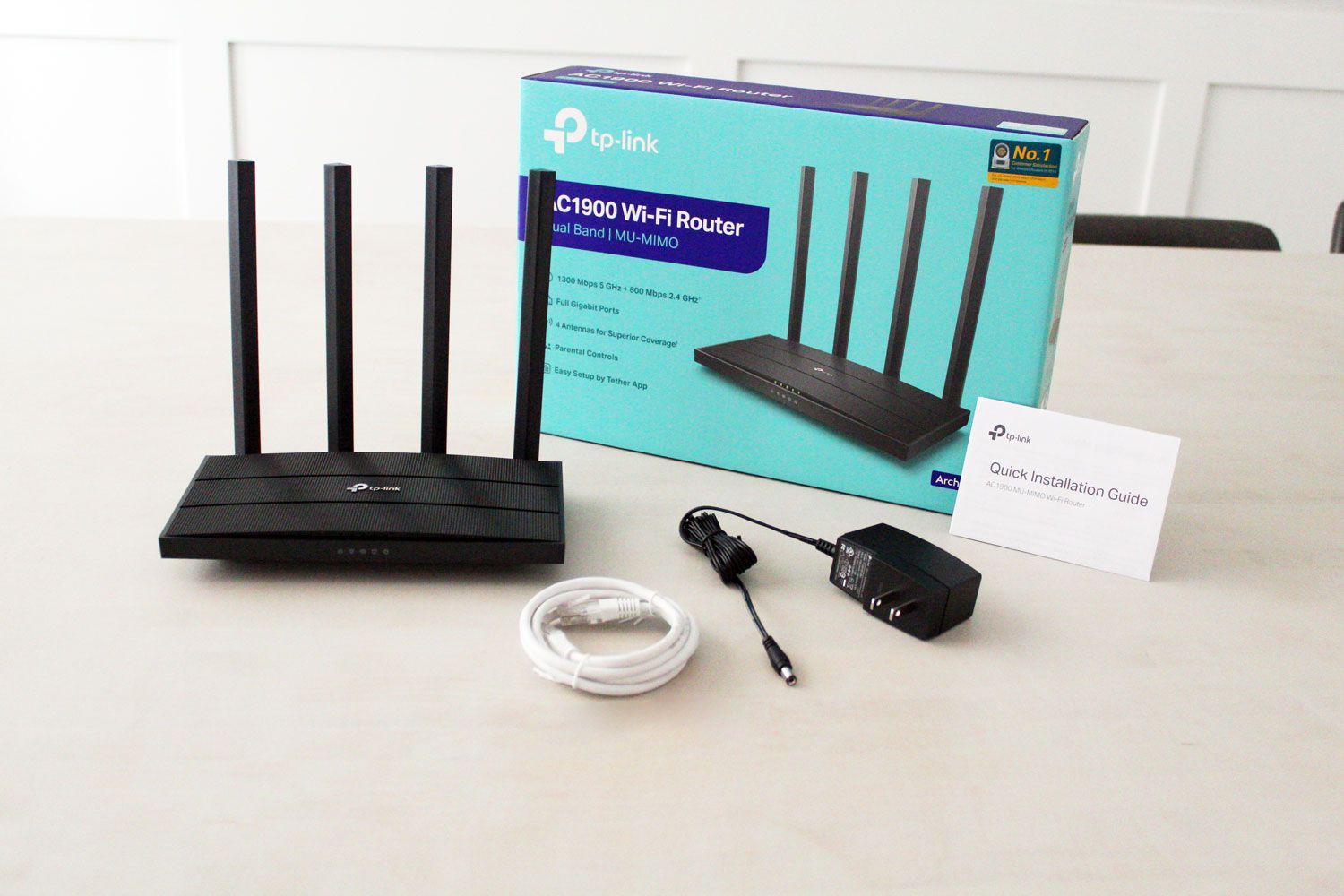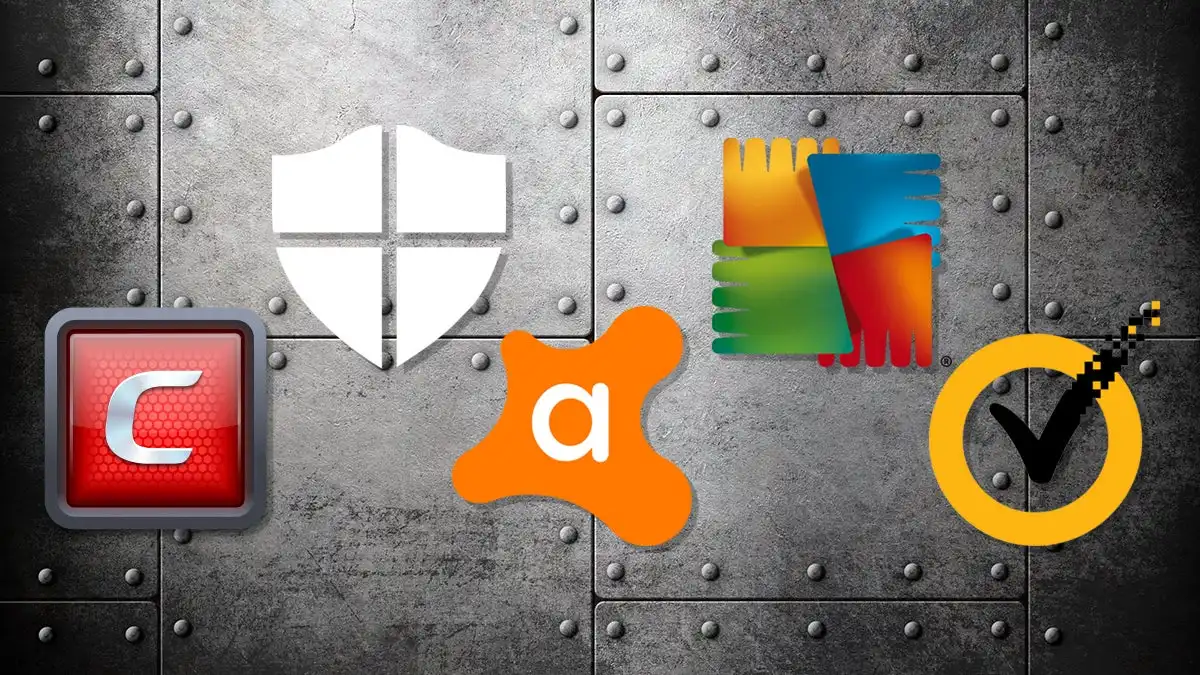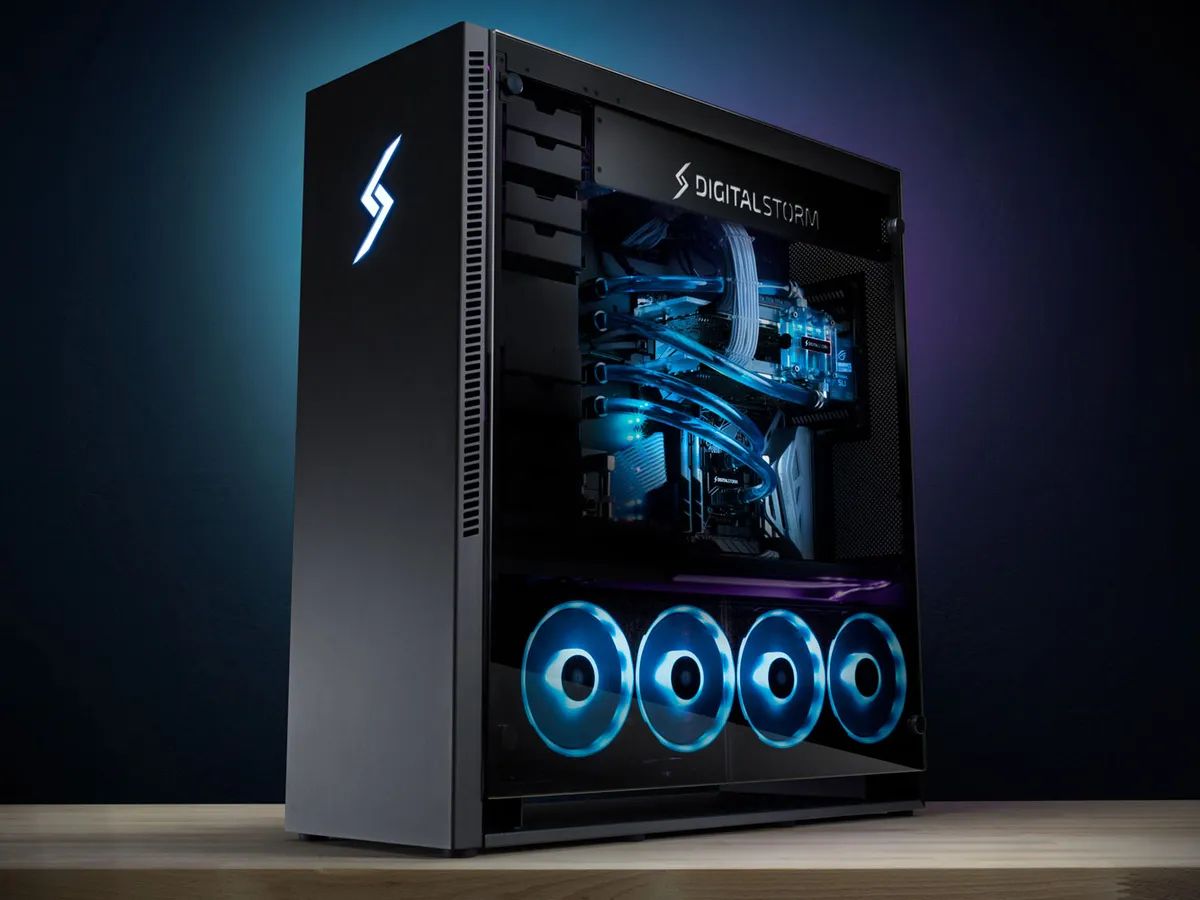Introduction
Welcome to the world of online gaming, where you can embark on exhilarating virtual adventures, compete with players from around the globe, and immerse yourself in captivating digital universes. But before you can jump into the action, it’s important to ensure you have the right internet speed for a seamless gaming experience.
Online gaming has evolved over the years, becoming more sophisticated and immersive. With stunning graphics, complex gameplay, and real-time interactions, the demand for high-speed internet has become crucial for avid gamers. Slow internet speeds can lead to frustrating lags, delays in response time, and an overall poor gaming experience.
In this article, we will explore the factors that affect your online gaming experience and discuss the minimum internet speed requirements for a smooth gameplay. We’ll also delve into the different types of online games and their varying internet speed requirements, helping you understand what speed is necessary for your favorite gaming genres.
Additionally, we’ll provide tips on how to optimize your internet speed for gaming and answer some common questions you may have about internet speed and online gaming.
So, if you’re ready to level up your gaming experience, let’s dive into the world of internet speeds and discover the key factors that will ensure you’re always a step ahead in the virtual realm.
Understanding Internet Speed
Before we delve into the specific internet speed requirements for online gaming, it’s important to have a basic understanding of how internet speed is measured and its impact on your gaming experience.
Internet speed refers to the rate at which data can be transmitted from the internet to your device and vice versa. It is typically measured in megabits per second (Mbps) and determines how quickly information can be sent and received over the internet.
While internet speed is essential for various online activities, including streaming videos, browsing websites, and downloading files, it is particularly crucial for online gaming. Unlike other online activities that may require continuous streaming or downloading, online gaming requires a stable and low-latency connection to ensure smooth gameplay in real-time.
Latency, also known as ping, is another critical factor to consider. It measures the time it takes for data packets to travel from your device to the game server and back again. Low latency is crucial for online gaming, as it reduces delays and ensures quick response times, allowing you to react swiftly in fast-paced gaming scenarios.
High-speed internet is beneficial for online gaming as it reduces the chances of experiencing lags, freezes, and disconnections. It enhances the overall gaming experience by providing a seamless and uninterrupted connection, allowing you to fully immerse yourself in the virtual world.
It’s important to note that internet speed can vary depending on your internet service provider (ISP), the type of connection you have, and the plan you subscribe to. Broadband connections, such as cable or fiber-optic, are generally faster and more reliable than dial-up or satellite connections.
Now that we have a basic understanding of internet speed and its significance for online gaming, let’s explore the factors that can impact your gaming experience.
Factors Affecting Online Gaming Experience
Several factors can affect the quality of your online gaming experience, aside from just internet speed. Understanding these factors will help you optimize your gaming setup and ensure a smooth and enjoyable gameplay. Let’s take a closer look at the key aspects to consider:
- Internet Connection Type: The type of internet connection you have can greatly impact your gaming experience. Broadband connections, such as cable or fiber-optic, are generally faster and more stable compared to satellite or dial-up connections.
- Bandwidth: Bandwidth refers to the amount of data that can be transmitted over your internet connection in a given time. Having sufficient bandwidth is crucial for online gaming, as it determines how much data can be sent and received between your device and the game server. Higher bandwidth allows for smoother and faster gameplay.
- Network Congestion: Network congestion occurs when there is high traffic on your internet service provider’s network. During peak usage hours, such as evenings or weekends, you may experience slower speeds and increased latency. Choosing an ISP with a robust infrastructure and low congestion rates can help minimize this issue.
- NAT Type: Network Address Translation (NAT) type can affect your online gaming experience, especially when playing multiplayer games. NAT determines how your device communicates with other devices and can impact the ability to establish direct connections with other players. It is recommended to have an open or moderate NAT type for the best gaming experience.
- Hardware Performance: The performance of your gaming device, including your computer or console, can also impact your online gaming experience. Ensure that your device meets the minimum system requirements for the game, and that your hardware, such as the graphics card and RAM, are up to par for smooth gameplay.
- Distance to Game Servers: The physical distance between your location and the game servers can influence your latency and ping. Choosing game servers that are geographically closer to your location can help reduce latency, resulting in a more responsive gaming experience.
By considering these factors and optimizing your gaming setup accordingly, you can enhance your online gaming experience and minimize potential issues that may hinder your gameplay. Now that we understand the factors that can impact your gaming experience, let’s dive into the minimum internet speed requirements for online gaming.
Minimum Internet Speed Requirements for Online Gaming
Having a reliable and fast internet connection is crucial for a seamless online gaming experience. While the specific internet speed requirements can vary depending on the game and platform, here are some general guidelines to consider:
- Download Speed: For most online games, a minimum download speed of 3 Mbps is recommended. This should be sufficient for downloading game updates, patches, and new content in a reasonable amount of time.
- Upload Speed: While not as critical as download speed, a minimum upload speed of 1 Mbps is generally recommended. This is important for sending your game data to the server and participating in multiplayer matches without experiencing lag.
- Latency/Ping: Online gaming requires a low-latency connection to ensure quick response times and minimal delays. A ping of 50 milliseconds (ms) or lower is considered desirable, though anything below 100 ms is generally acceptable for most games.
It’s worth noting that these are minimum recommendations, and higher internet speeds can provide a smoother and more enjoyable gaming experience, especially for games with more demanding graphics and gameplay mechanics.
For competitive online gaming, such as first-person shooters or real-time strategy games, higher internet speeds are often preferred to maintain a competitive edge. A download speed of 10 Mbps or higher, with an upload speed of 5 Mbps or more, can help ensure optimal performance in fast-paced multiplayer matches.
However, it’s important to consider that other factors, such as network stability, can also impact your gaming experience. Even with a fast internet connection, if you experience intermittent disconnections or high network jitter, your gameplay may still be affected.
Furthermore, it’s advisable to check the system requirements specified by the game developer or platform provider. Some games may have specific internet speed recommendations or additional technical requirements that are essential for a smooth gaming experience.
Now that we have a better understanding of the minimum internet speed requirements for online gaming, let’s examine the varying speed requirements based on different types of online games.
Different Types of Online Games and Their Internet Speed Requirements
Online games come in various genres, each with its own gameplay style, graphics, and network requirements. Let’s explore different types of online games and the internet speed recommendations for each:
- Massively Multiplayer Online Games (MMOs): MMOs are vast virtual worlds where thousands of players interact simultaneously. These games generally require a higher internet speed due to the constant flow of data between players and the game server. A minimum download speed of 10 Mbps and an upload speed of 5 Mbps are recommended for a smooth MMO experience.
- First-Person Shooters (FPS): FPS games place a heavy emphasis on reflexes and real-time gameplay. To minimize lag and ensure quick response times, a minimum download speed of 5 Mbps and an upload speed of 3 Mbps are typically recommended for FPS games.
- Real-Time Strategy (RTS) Games: RTS games involve managing resources and commanding armies in real-time. These games require a stable and low-latency connection to synchronize commands and actions. An internet speed of at least 3 Mbps for downloads and 1 Mbps for uploads is generally sufficient for RTS games.
- Mobas and Multiplayer Online Battle Arenas (MOBAs): MOBAs, such as League of Legends or Dota 2, require a combination of strategy and skill in team-based battles. A minimum download speed of 5 Mbps and an upload speed of 2 Mbps are usually recommended for MOBAs.
- Sports and Racing Games: Sports and racing games, such as FIFA or Forza, rely on quick reflexes and responsive controls. While these games are less demanding in terms of internet speed, a minimum download speed of 3 Mbps and an upload speed of 1 Mbps should suffice.
Depending on the specific game, these speed recommendations can vary. Some games may require higher speeds, especially if they feature more complex graphics, larger player counts, or intense real-time interactions.
It’s important to note that these recommendations are based on the assumption of a single player without additional bandwidth-intensive activities running simultaneously. If multiple devices are connected to the internet or if you engage in other data-intensive activities while gaming, you may need higher internet speeds for an optimal experience.
Now that we have explored the speed requirements for different types of online games, let’s move on to the next section to help you choose the right internet plan for gaming.
Choosing the Right Internet Plan for Gaming
When it comes to online gaming, choosing the right internet plan is essential to ensure a smooth and uninterrupted gaming experience. Here are some factors to consider when selecting an internet plan for gaming:
- Internet Speed: As discussed earlier, consider the recommended internet speed for the type of games you play. If you primarily play fast-paced multiplayer games or MMOs, it’s advisable to opt for a plan with higher download and upload speeds to minimize lag and maintain a competitive edge.
- Data Allowance: Some internet plans come with data caps or limits on the amount of data you can use per month. For gaming, it’s preferable to choose a plan with unlimited or high data allowances, as online gaming can consume significant amounts of data, especially for large downloads, updates, and continuous online gameplay.
- Network Stability and Reliability: Look for an internet service provider (ISP) that offers a stable and reliable network. Check customer reviews or speak to other gamers in your area to gauge the ISP’s reputation for consistent performance and minimal downtime.
- Low Latency: Latency is crucial for online gaming, so it’s important to choose an ISP that offers low-latency connections. Consider ISPs that prioritize gaming or offer specialized gaming packages, as they may have optimized their network for minimum ping and latency.
- Customer Support: In case you encounter any issues with your internet connection, having reliable customer support can be invaluable. Look for an ISP that offers responsive and knowledgeable support to quickly address any connectivity or technical issues that may impact your gaming experience.
- Price and Affordability: Consider your budget and compare prices among different ISPs for their gaming-specific plans or packages. Keep in mind that while it’s important to choose a plan that meets your gaming needs, it’s also essential to find a balance between performance and affordability.
Every gamer’s requirements and preferences may vary, so take the time to research different ISPs and plans available in your area. Evaluate their offerings based on the factors mentioned above to find the internet plan that best suits your gaming needs and budget.
It’s worth noting that some ISPs may offer additional features such as built-in security, faster routing for gaming traffic, or partnerships with specific game platforms or services. These additional offerings can further enhance your gaming experience and may be worth considering when selecting an internet plan.
Now that we have explored how to choose the right internet plan for gaming, let’s move on to the next section where we will provide some tips for optimizing your internet speed specifically for gaming.
Tips for Optimizing Internet Speed for Gaming
To ensure that you are getting the best possible internet speed for your gaming sessions, here are some helpful tips to optimize your connection:
- Use a Wired Connection: Whenever possible, connect your gaming device directly to your router using an Ethernet cable. Wired connections are generally more stable and offer lower latency compared to Wi-Fi connections, which can be affected by interference and signal strength.
- Close Unnecessary Applications: Before gaming, close any bandwidth-heavy applications running in the background, such as file-sharing programs or streaming services. This will free up bandwidth and reduce network congestion, allowing for a smoother gaming experience.
- Update Your Router Firmware: Make sure that your router is running the latest firmware version, as updates often include performance improvements and bug fixes. Check your router manufacturer’s website for firmware updates and follow the instructions to update your router.
- Optimize QoS Settings: Quality of Service (QoS) settings on your router allow you to prioritize certain types of traffic, such as gaming, over other activities. Enable QoS and set the priority for gaming traffic to ensure a smoother experience when gaming alongside other devices on your network.
- Limit Network Interference: Keep your gaming device away from other devices that can cause wireless interference, such as cordless phones, microwaves, and Bluetooth devices. These devices can disrupt your Wi-Fi signal and impact your internet speed and stability.
- Upgrade Your Equipment: If you’re using an outdated router or modem, consider upgrading to newer models that support higher speeds and offer better performance. A more advanced and capable networking setup can significantly improve your gaming experience.
- Enable UPnP: Universal Plug and Play (UPnP) is a feature that allows devices on your network to automatically open the necessary ports for online gaming without manual configuration. Enable UPnP on your router to ensure proper communication between your gaming device and the game server.
- Reduce Network Jitter: Network jitter refers to the variation in delay when sending and receiving data packets. To minimize jitter, use a network cable with better shielding, reduce network interference, or consider upgrading to a higher-quality internet service plan with lower latency and more consistent speeds.
By implementing these tips and optimizing your internet connection for gaming, you can ensure a more stable and responsive gaming experience. Experiment with these suggestions to find the setup that works best for you and your specific gaming needs.
Now that we have explored how to optimize your internet speed for gaming, let’s move on to the next section where we will answer some common questions about internet speed and gaming.
Common Questions About Internet Speed for Gaming
As online gaming continues to gain popularity, players often have questions regarding internet speed and its impact on their gaming experience. Let’s address some common questions and concerns:
- Does a faster internet speed always result in better gaming performance? While faster internet speeds can generally provide a better gaming experience, other factors like network stability, latency, and hardware performance also play a significant role. It’s important to have a balance between all these aspects to achieve optimal gaming performance.
- What can I do if I have a slow internet connection for gaming? If you are experiencing consistently slow internet speeds, consider contacting your internet service provider (ISP) to troubleshoot the issue. They may be able to identify any technical problems or suggest solutions to improve your connection.
- Can I use a mobile hotspot for online gaming? Mobile hotspots can be used for online gaming, but it’s important to note that the connection may not be as stable or reliable as a wired broadband connection. Additionally, mobile hotspots often have data caps, so it’s essential to monitor your usage to avoid unexpected charges or limitations on your gaming experience.
- Does my internet speed affect online gaming on consoles? Yes, your internet speed affects online gaming on consoles just as it does on PCs. The recommended internet speed requirements for gaming remain the same across different platforms.
- Can my internet speed affect my ability to play with friends online? Your internet speed can impact your ability to play with friends online, especially if your connection is significantly slower or less stable than theirs. In multiplayer games, all players need a sufficient internet speed to ensure smooth communication and synchronize gameplay.
- Is a wired connection always better than Wi-Fi for gaming? In general, a wired connection is more stable and reliable for gaming compared to Wi-Fi. However, modern Wi-Fi technology has improved over the years, and with a high-quality router and good signal strength, Wi-Fi can still provide a solid gaming experience.
Keep in mind that internet speed requirements may vary based on the specific game, platform, and even geographical location. It’s always advisable to refer to the recommended system requirements provided by the game developers or platform providers for accurate speed guidelines.
If you have further questions or concerns about your internet speed and its impact on gaming, don’t hesitate to reach out to your ISP or seek assistance from dedicated gaming communities and forums. They can provide valuable insights and recommendations based on their own experiences.
Now that we’ve addressed these common questions, let’s wrap up this article with a summary of the key points we’ve discussed.
Conclusion
Having the right internet speed is crucial for a seamless and enjoyable online gaming experience. Whether you’re embarking on epic MMO quests, engaging in intense multiplayer battles, or exploring immersive virtual worlds, a fast and stable internet connection ensures that you stay connected with fellow gamers and experience minimal delays or lag.
In this article, we’ve explored the factors that affect online gaming experience, including internet speed, latency, and network stability. We’ve discussed the minimum internet speed requirements for gaming, which generally range from 3 Mbps to 10 Mbps for downloads, depending on the type of game and its demands.
Additionally, we’ve delved into the varying internet speed recommendations for different types of online games, such as MMOs, FPS, RTS, MOBAs, and sports games. Understanding the specific speed requirements for your favorite gaming genres can guide you in choosing the right internet plan for optimal performance.
We’ve also provided tips for optimizing your internet speed for gaming, including using a wired connection, closing unnecessary applications, updating your router firmware, and prioritizing gaming traffic using QoS settings. These tips can help you maximize your gaming experience and minimize any potential issues related to internet performance.
Lastly, we’ve covered common questions and concerns about internet speed for gaming, addressing topics ranging from the impact of faster internet speeds to the use of mobile hotspots and the importance of a stable connection for multiplayer gameplay.
Now armed with this knowledge, you can confidently choose the right internet plan, optimize your connection, and enjoy immersive gaming experiences with minimal disruptions. So, power up your gaming device, connect to the virtual world, and may your internet speed be lightning-fast and your gaming adventures extraordinary!

























